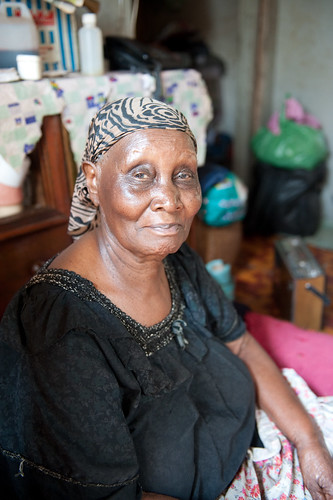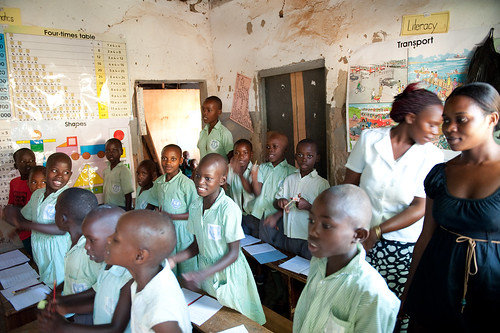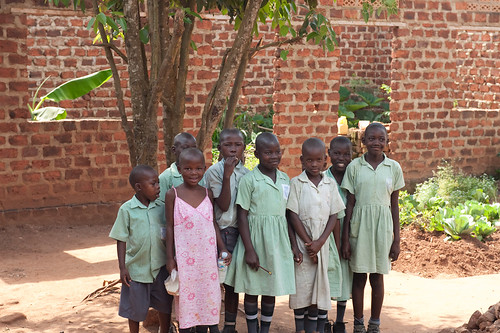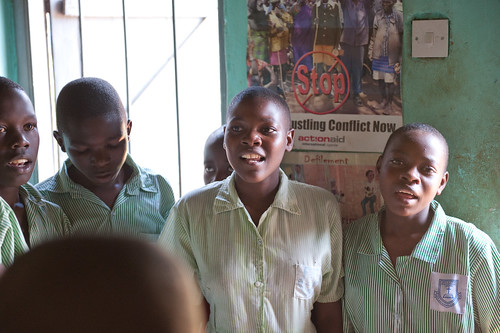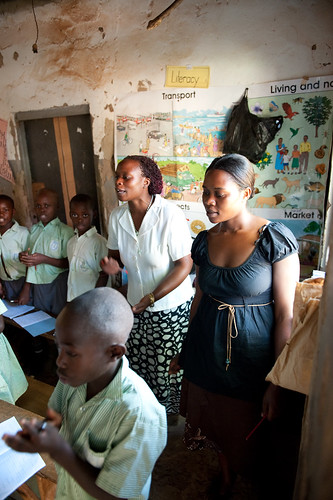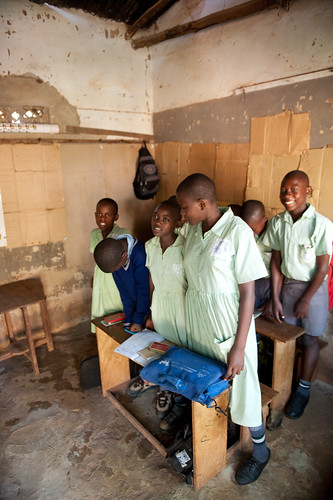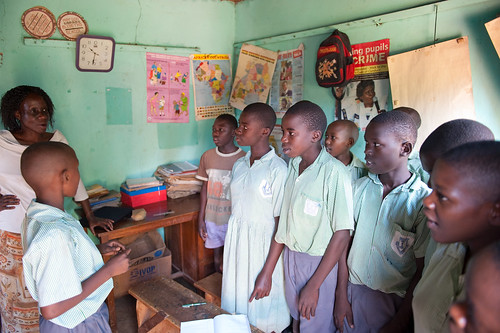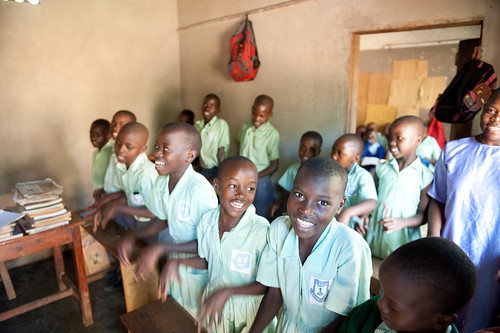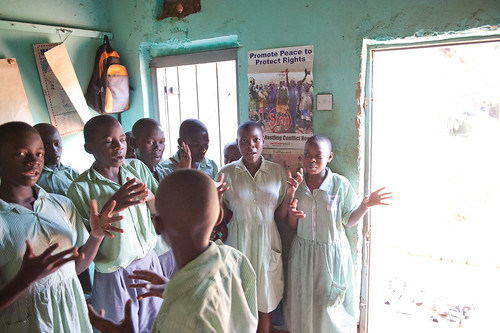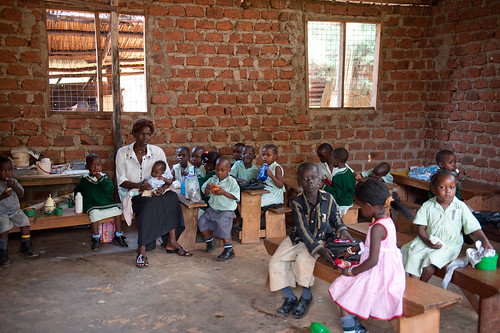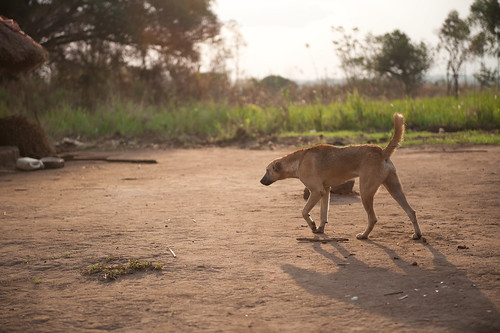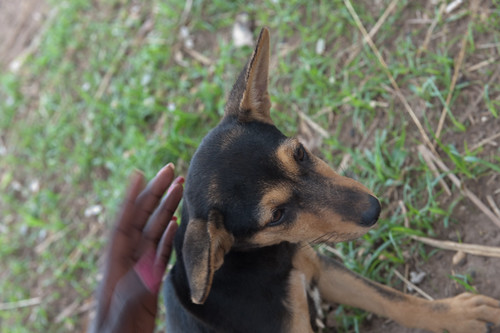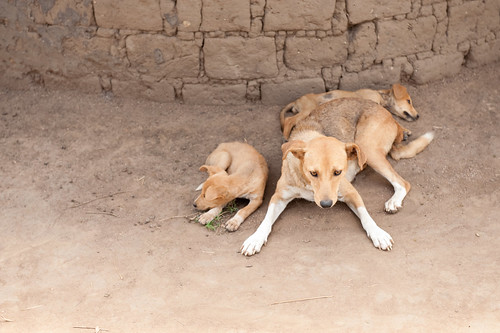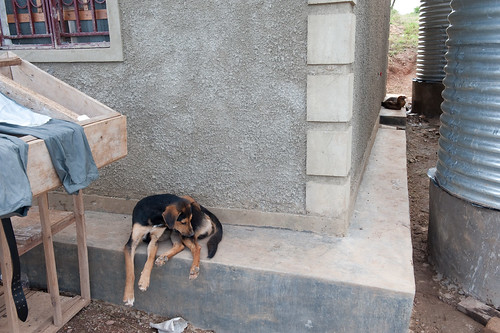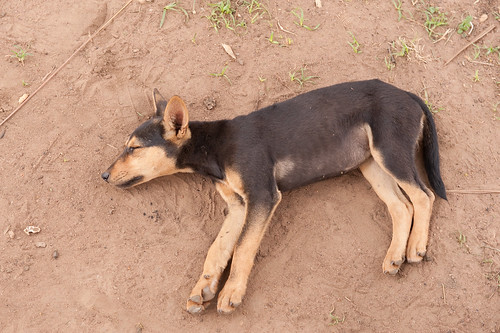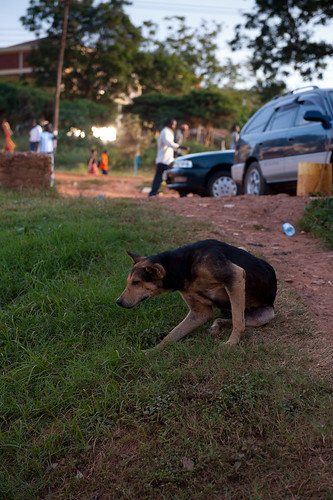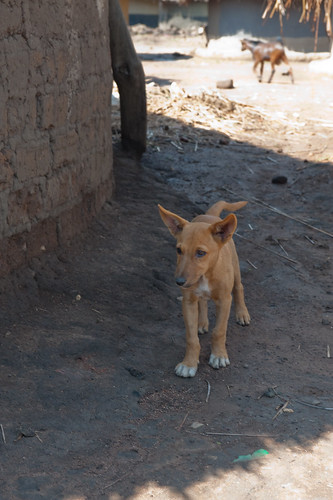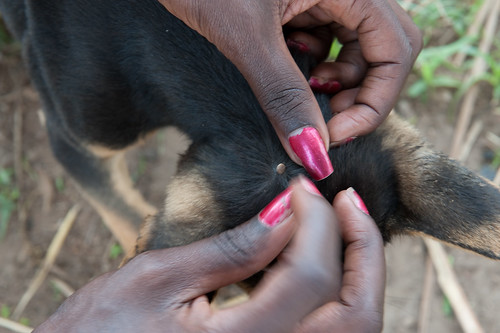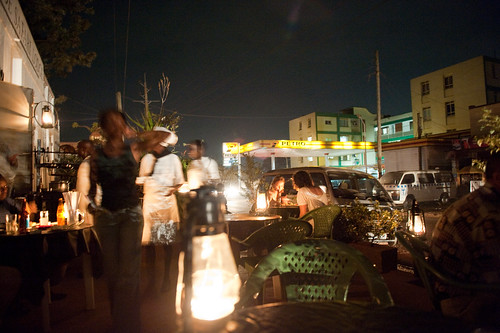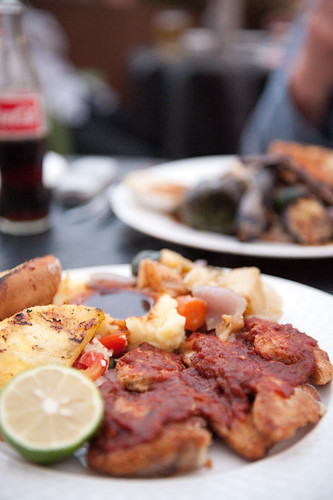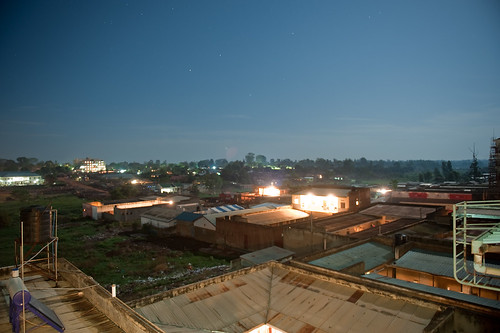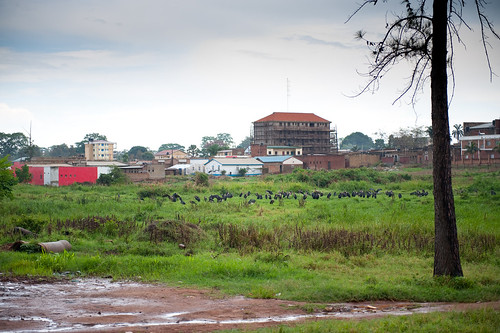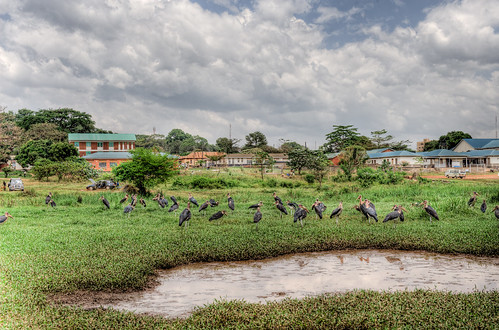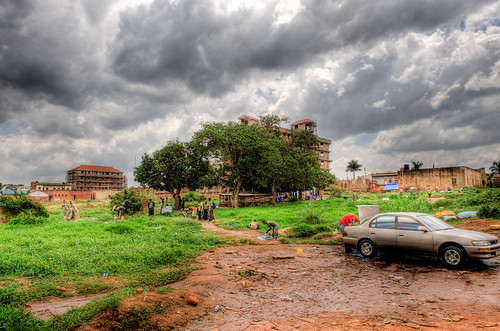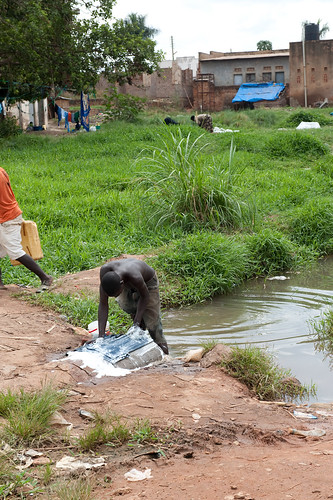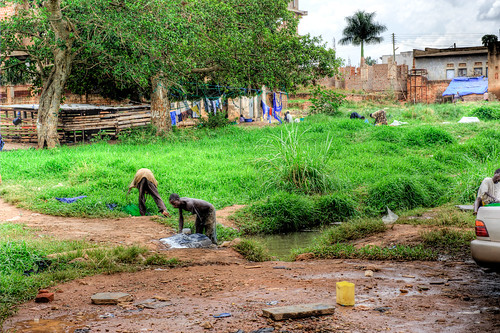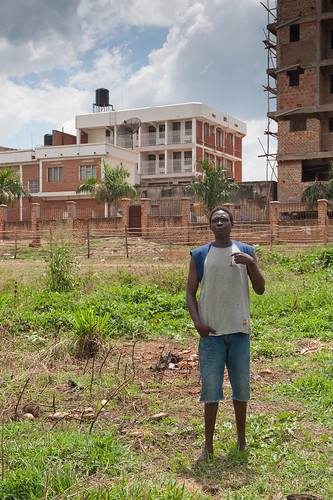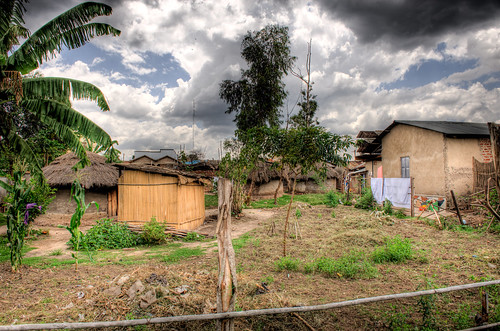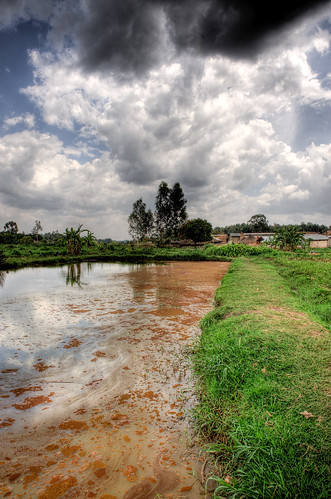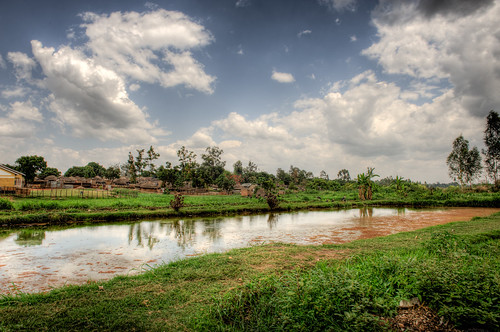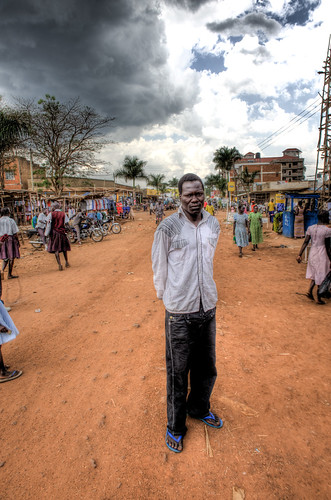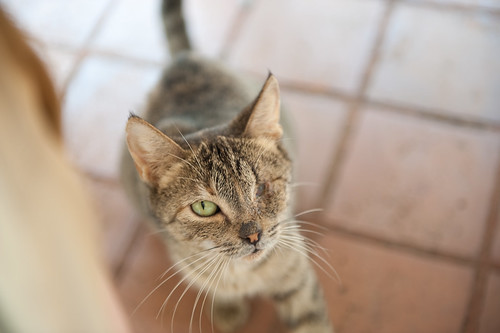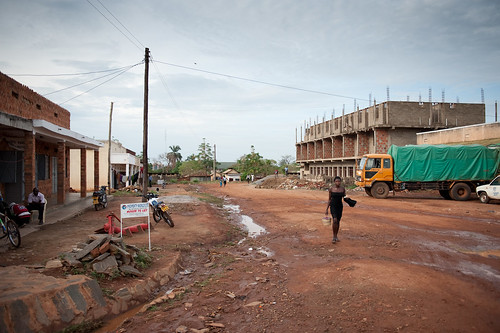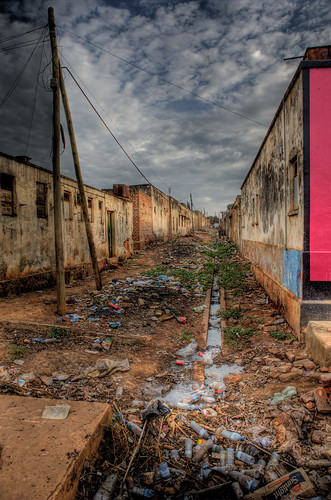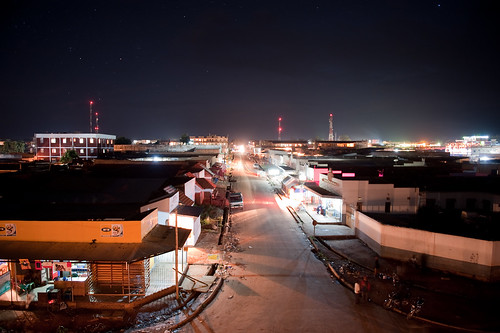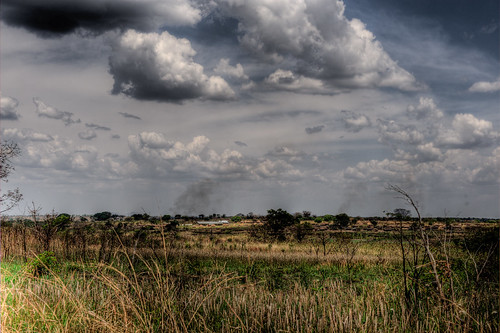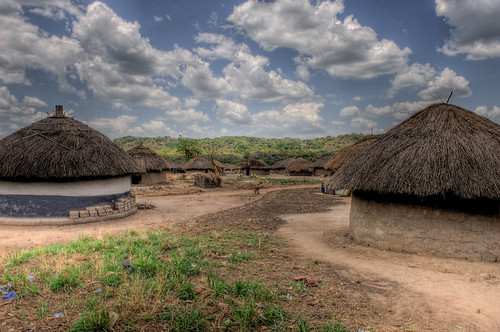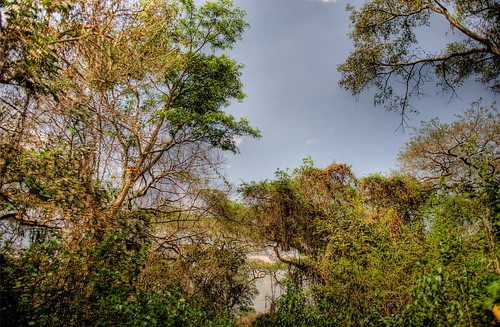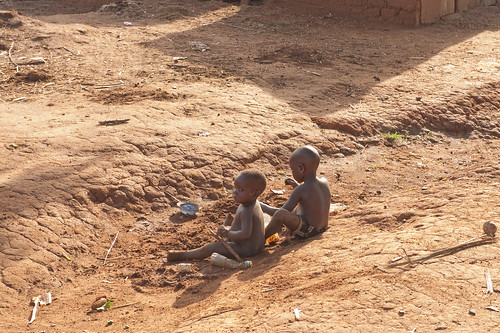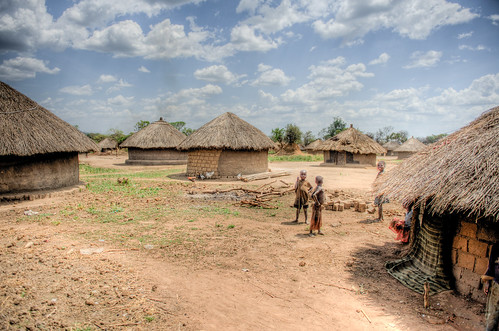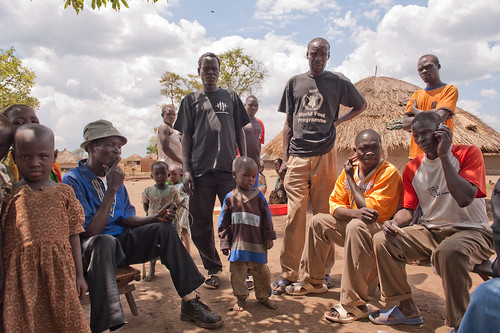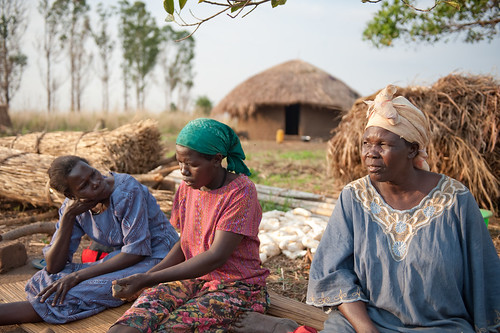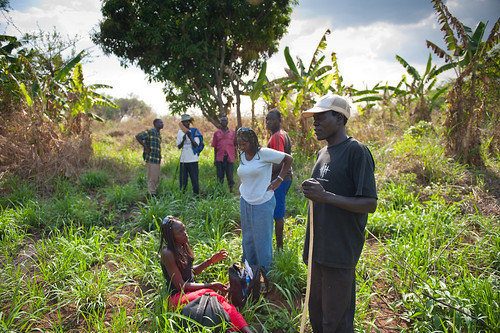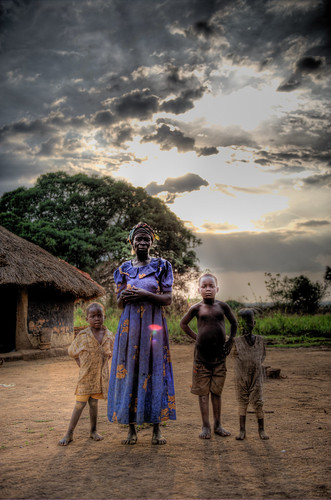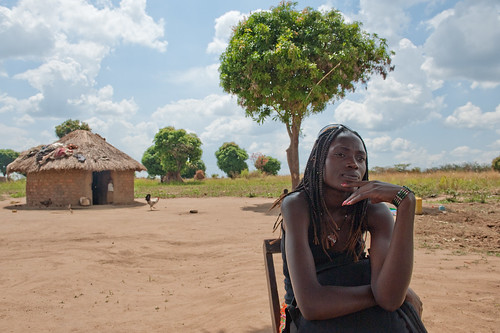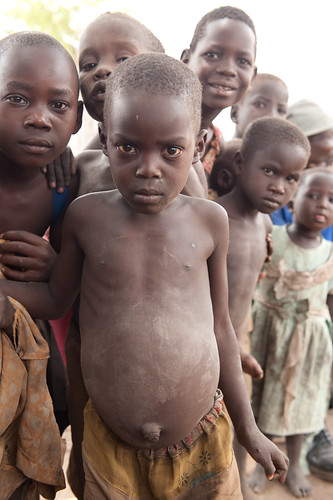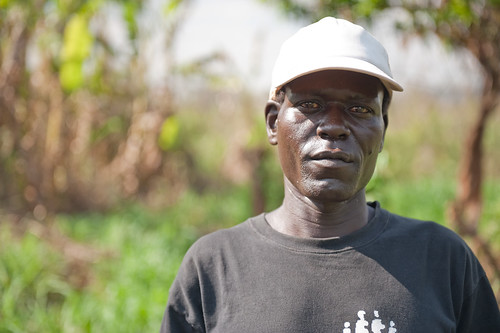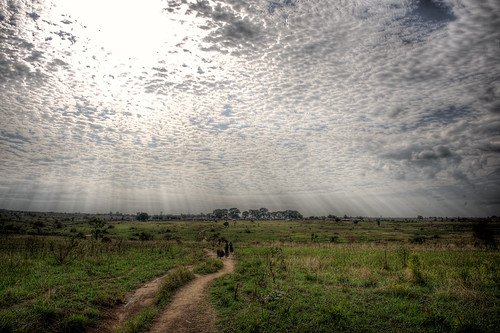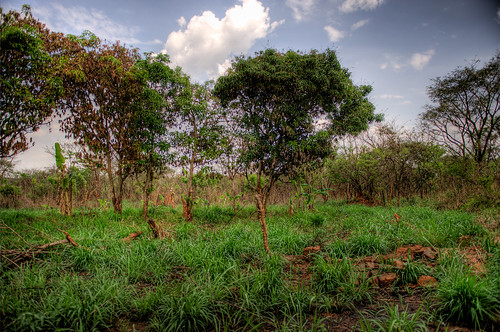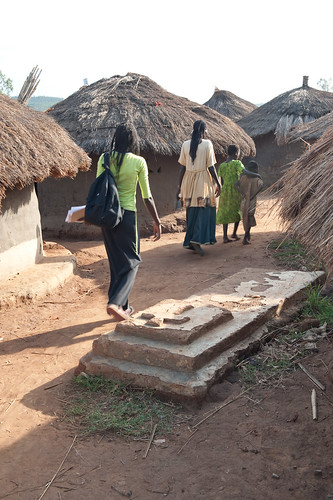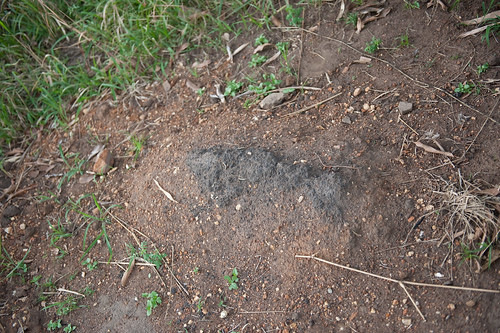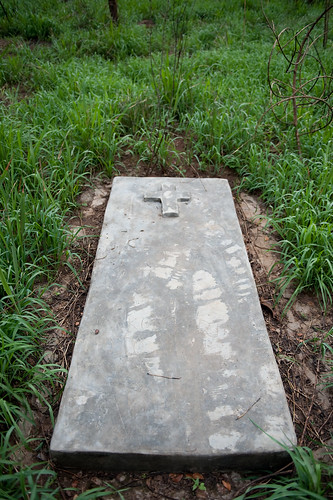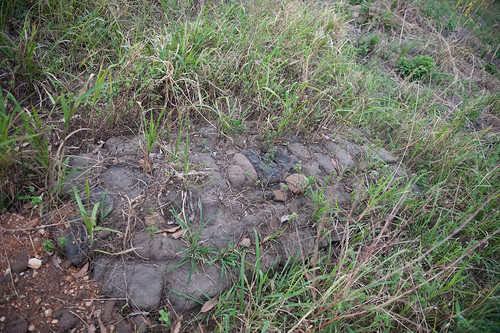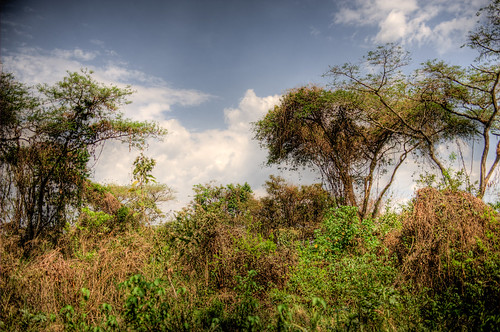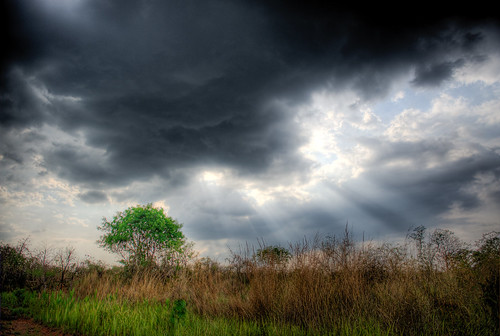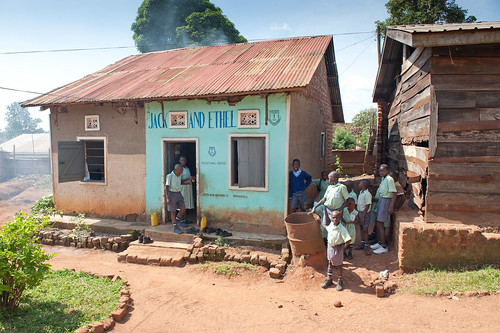
While the UJV is my primary reason for being here, it's pretty easy to find lots of good, grass roots causes to support in Uganda. One morning I was asked if I wanted to see a school just beside Kitunzi where I live. The School, the Jack and Ethel, is a local community school that offers free primary education, kindergarten through Grade six, to 120 under privileged children who would not otherwise have the opportunity to go to school. The school came into being after a woman, Ethel, who had recently lost her husband of many years, Jack, decided to donate their farm to build a charity school. With the largest expense, rent, out of the way, the principal, a teacher and Ethel and Jacks daughter, needed only to secure funding to pay modest teacher salaries. The Ugandan Ministry of Education has provided bare-bones funding and the school has run for several years. Ethel even provides lunches for children who cannot afford to bring their own.
What is so impressive about the Jack and Ethel is the results they have achieved with such little resource. Not only are 120 children getting education that they would not otherwise get, and doing so without proper funding, they are posting impressive scholastic results. You see children who graduate from primary school must compete to enter secondary school and there are far less seats available than applicants. Most people in Uganda pay high private school fees to place their children in prestigious (and thus expensive) primary schools that boast high secondary acceptance rates. But the Jack and Ethel has posted acceptance rates that a nearly equal to expensive private schools.
The Principal of the Jack and Ethel told me what the budget was and its was pitifully low in American currency terms. She also outlined plans that she would carry out to improve the school if she found a source of funding. This included completing construction on new buildings and expanding the number of students to 200, feeding the kids better lunches, and buying reading materials for the children. The latter being a prime concern as they currently cannot afford books for the kids. The staff don't even have a single computer to view the photos I took of them.
As you can see from the photos, the children are beautiful and very happy to be going to school. As we walked about, they enthusiastically recited oral drills, and each class tried to outdo the last.
The Jack and Ethel is a perfect cause for one of my better funded readers to take up and support. For a few hundred dollars per term you could improve the lives of these kids and expand the services the school offers. This is direct charity support work, as I could put anyone in touch with the school administrators and you could donate the money directly to them. There would be no middle man, every dollar donated would go right into valuable community development services. We could even come back here in a year or two and visit the Jack and Ethel to see where the money has gone.

